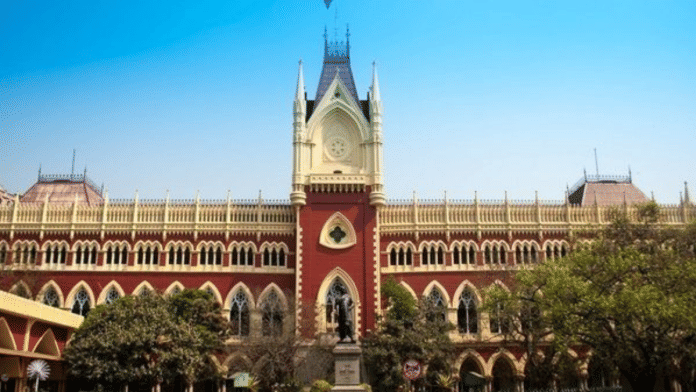New Delhi: The Bharatiya Nagarik Suraksha Sanhita (BNSS), the new procedural criminal law that makes forensic testing mandatory for certain offences, would put “immense stress” on laboratories, the Calcutta High Court said last week. It directed the Union government to designate a laboratory in Kolkata as a central forensic science laboratory (CFSL) to support the requirements.
“This [amendment] would put immense pressure on the existing central forensic laboratories and state forensic laboratories to analyse forensic samples, particularly blood and other body fluids, for DNA analysis, collected from the place of occurrence,” the court said.
The court then directed the Union government to designate Calcutta’s National Institute of Biomedical Genetics (NIBMG), wholly owned by the Centre, as a “CFSL laboratory”, which would allow NIMBG scientists to be designated “government scientific experts” in the law, enabling them to be witnesses before courts.
The BNSS, which replaces the erstwhile Code of Criminal Procedure, has been brought in to “use technology and forensic sciences” and “reform” the criminal justice system.
In particular, Section 176 of the BNSS, which provides the framework for criminal investigations, has added a provision, which has to be operationalised within five years, mandating forensic evidence for certain offences.
Here, ThePrint explains this provision and how and when it will take effect.
The details of the law
Section 176 of the BNSS provides the broad procedure that investigating agencies should follow after a crime, including how a police officer receives information on a crime and acts on it.
Sub-section 3 mandates that forensic experts collect forensic evidence from the crime scene for every offence that carries a punishment of more than seven years. The forensic experts will visit the crime scene after the police get information about the crime and collect the forensic samples, which will then be used by the police for their investigation.
“On receipt of information relating to the commission of an offence, which is made punishable for seven years or more, the officer in charge of a police station shall…cause the forensics expert to visit the crime scene to collect forensic evidence in the offence and also for videography of the process on a mobile phone or any other electronic device,” Section 176 (3) of the BNSS reads.
This sub-section will only be applicable and operational once the relevant state government decides a date for the implementation of the section. Once the state government decides the date, it has to notify this in the gazette, after which the section will take effect, making its provision operational.
The law is silent on the consequences for state governments that do not fix a date for the application of the section. However, once the states do their part, for any offence that carries a jail term of more than seven years, it will be mandatory to conduct a forensic examination of the crime scene on an order by a police station in-charge.
Offences such as rape, child trafficking, murder, and dowry death, all of which carry terms of more than seven years, fall within the purview of the additional requirement to collect forensic evidence from the crime scene.
If a state does not have a forensic facility to conduct such tests, the law allows a forensic testing facility in another state to do it.
The now outdated criminal law framework had no defined legal requirements for forensic evidence collection from crime scenes. Whether or not such evidence was required was left to the state police.
The law has raised several concerns, including the broad scope of forensic data collection extending to private persons, the expanded scope of personal data collection, and the exemptions restricting judicial interference with forensic reports.
To meet the infrastructure requirements brought in by the new law, the Centre has set up the National Forensic Science University to expand the pool of forensic science experts and scientists qualifying every year.
Laboratories such as the Central Forensic Sciences Laboratories (CFSL) in Delhi are also undertaking steps, with training and special workshops to prepare their personnel, considering the massive resources and infrastructure required for effectively implementing the new law at scale.
(Edited by Madhurita Goswami)
Also read: As Calcutta HC orders 1% quota for transgender people, how SC ruling & 2019 law protect their rights






